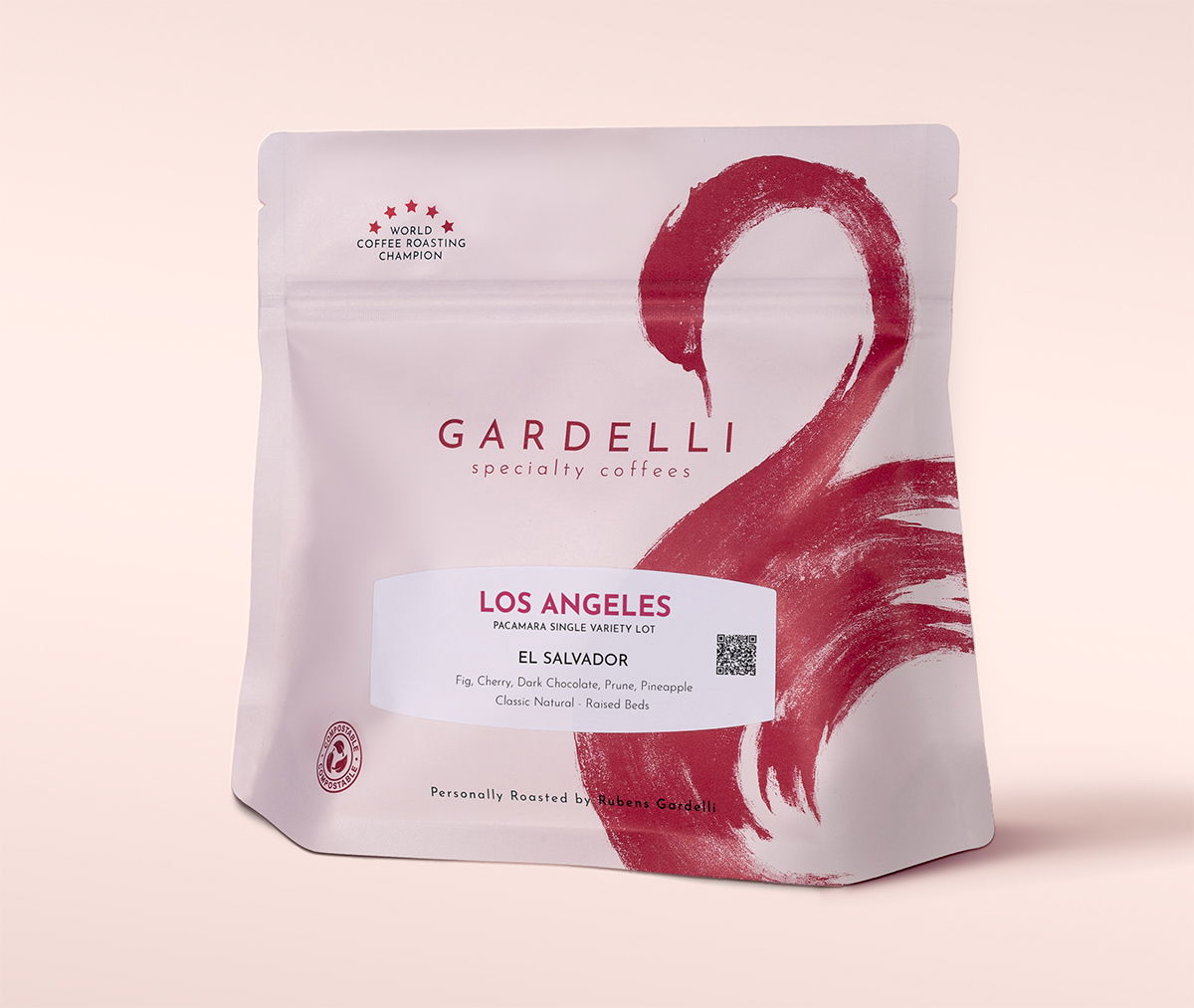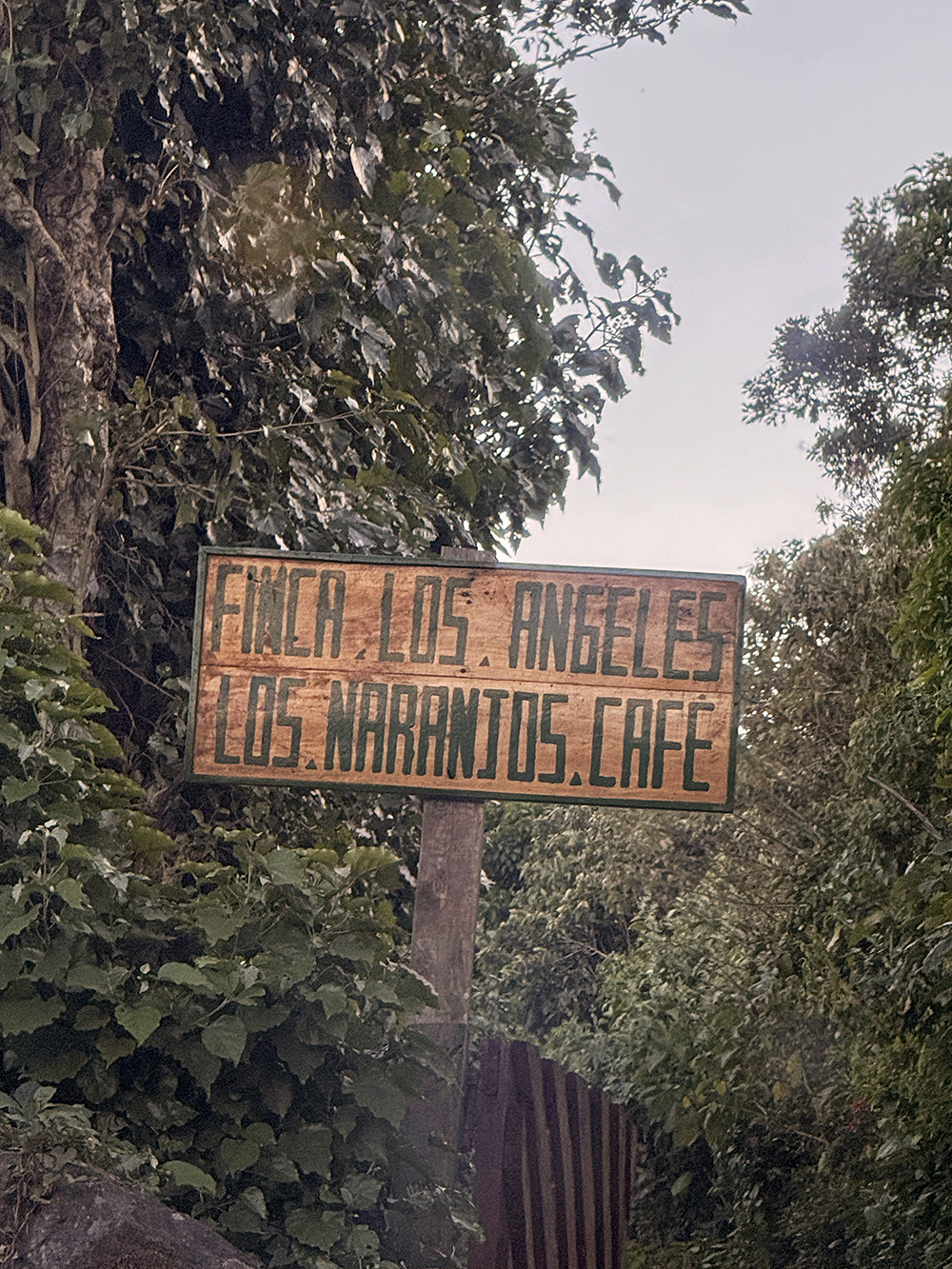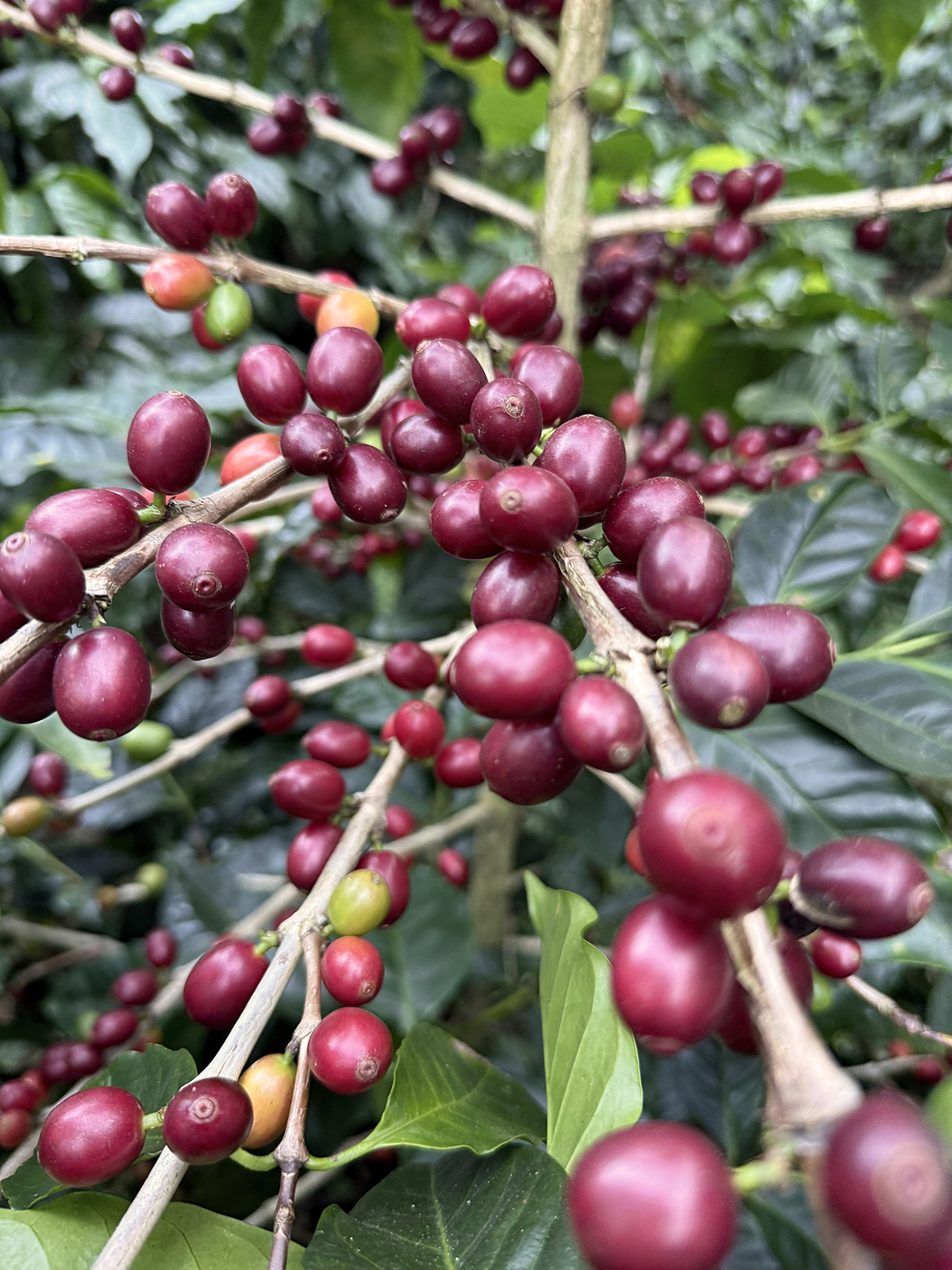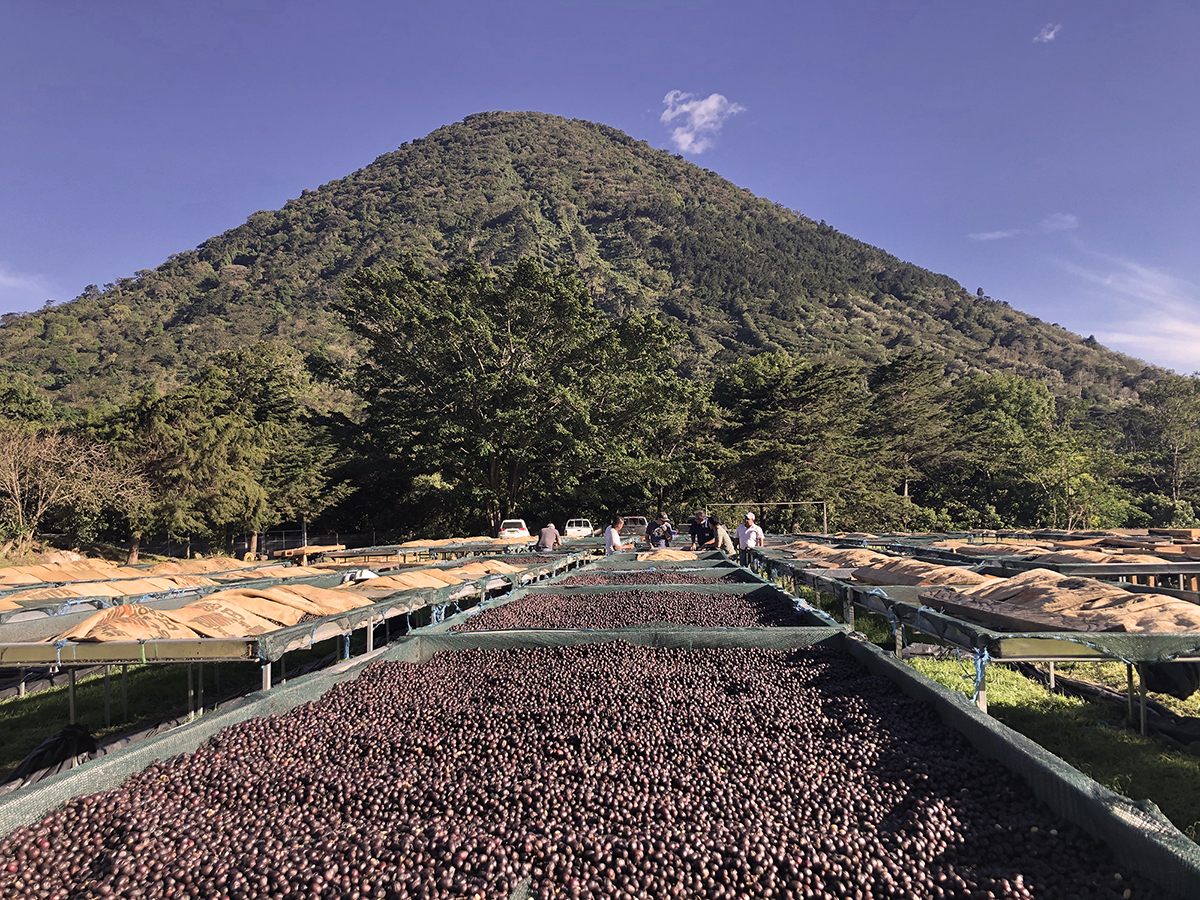








El Salvador
Cup Notes: Fig, Cherry, Dark Chocolate, Prune, Pineapple
This Pacamara lot offers a balanced acidity on the palate, providing a versatile and harmonious tasting experience. Perfect for any time of the day, it stands out for its fruity and well-rounded profile.
Suggested for espresso and filter
when we roast
We freshly roast to order all coffees on Monday, Wednesday and Friday (excluding national holidays), and ship the same day! Cut-off time is 11:59pm (UTC+1) of the day before the roast day. *We only ship whole beans*
Finca Los Angeles is a stunning farm planted exclusively with Pacamara, a variety celebrated for its complex and intense aromas. Located in the Ahuachapán mountain range in western El Salvador, this farm is part of the Fincas Los Naranjos group, led by Sigfredo Corado, a retired professor of agronomy.
The farm is managed through exceptional agronomic practices, including regulated shade from native species, soil enrichment through organic matter, and a strict no-herbicide policy, all of which contribute to a sustainable and balanced ecosystem.
Finca Los Angeles also participates in the Renacer Programme ("Reborn" in Spanish), which educates local producers about improving farm management practices through three annual modules focusing on the "4 R's": Right Source, Right Dose, Right Place, and Right Moment. These initiatives ensure both the environmental sustainability of the farm and its high productivity.

Pacamara is a hybrid created at the end of the 1950s in El Salvador by the Institute for Coffee Research (ISIC).
Created by crossing the Pacas variety (an El Salvadoran mutation of Bourbon) with Maragogype, it gets its name from the first four letters of each of its parents. Naturally, it possesses traits from both parents. Its relatively short stature and high productivity are inherited from the Pacas variety, and, like the Maragogype, Pacamara is known for its large cherries.
Pacamara tends to be more productive than the Maragogype and it is known to produce a pleasant cup. However, the variety is highly susceptible to coffee leaf rust.
The variety is not homogeneous, plants are not stable from one generation to another.

The natural process is carefully defined based on the maturity classification and variety of the coffee cherries, ensuring optimal cup quality. Client preferences also influence the process, and only cherries classified as Category "A" with a Brix level above 19 are selected.
The process begins with flotation, where empty or overripe cherries are removed to prevent unwanted fermentation and off-flavours. The selected cherries are then placed in metallic hoppers, transferred to metallic carts, and taken to patios for pre-drying, where they are constantly moved for five days to avoid damage.
After this initial phase, the coffee is transferred to African beds in a two-level drying system. First, the cherries are placed in polypropylene sacks, weighed, and moved to the lower level of the drying beds for three to five days, reducing humidity to 20%.
Then, they are transferred to the upper level for eight to ten days, depending on sunlight, until they reach a final humidity of 10%.
Once dried, the coffee is stored in polypropylene sacks with GrainPro liners to prevent moisture reabsorption and preserve quality.
The following day, a 300g sample is taken from each sack for quality analysis before stacking the coffee by farm, variety, and process. Finally, the sacks are sealed, stacked on wooden pallets, covered with hessian sacks, and stored with dehumidifiers to maintain ideal conditions and prevent cup defects.
